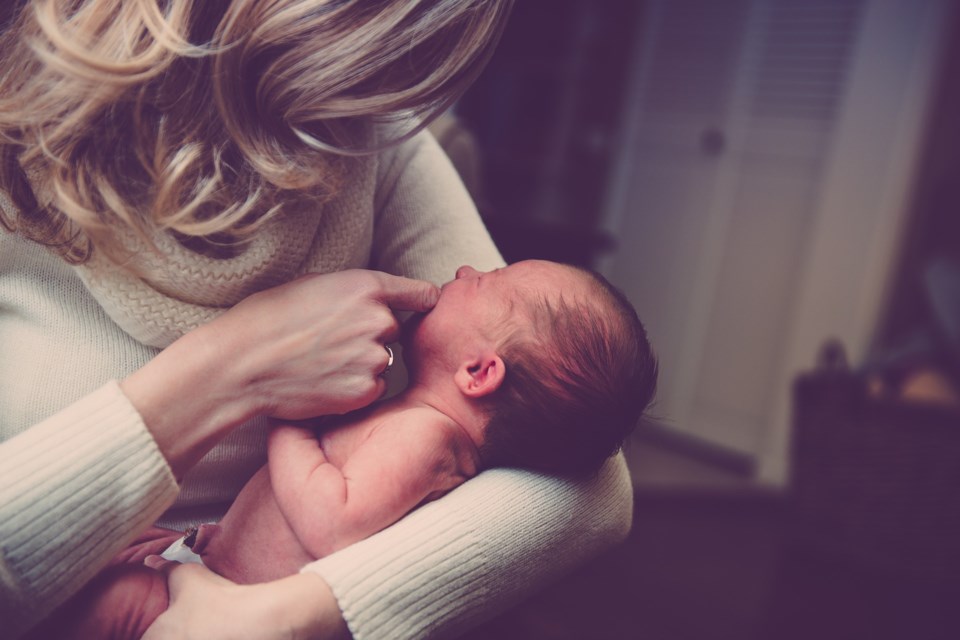Can the bacteria present in your gut when you're born impact your health as a child and then as an adult?
That’s the question UBC researchers are trying to answer in the Maternal Microbiome Legacy Project, and they need expectant mothers in Prince George to help them figure it out.
Dr. Sheona Mitchell-Foster, a Northern Medical Program faculty member, is leading the collection of data and analysis in Prince George to find out if there are different effects on a baby’s gut bacterial community (microbiome) depending on cesarean or vaginal delivery.
“In our bodies, we have more bacteria cells than we have human cells. What we’ve found is that our body's microbiome is actually related to a variety of chronic diseases and it plays a very significant role in our health throughout our life course,” explains Mitchell-Foster.
“We don’t know how this microbiome or community of bacteria develops in infants. One of the questions we have is – is is it different for infants born vaginally or infants born via c-section.”
Mitchell-Foster says a practice that’s becoming common with women who have had a c-section is swabbing the baby with a sample of their own vaginal secretions in order to help the baby develop his or her own microbiome.
“There are concerns with the safety of that,” says Mitchell-Foster. “We don’t even know if its effective, so before we can recommend or not recommend that we need to know if there is a correlation between mom’s microbiome and how baby’s microbiome develops.”
Mitchell-Foster is part of a provincial team of researchers working on the $1.4-million, five-year Canadian Institutes of Health Research (CIHR) project, led by Dr. Deborah Money, professor of obstetrics and gynaecology at UBC's Faculty of Medicine.
The University Hospital of Northern B.C. (UNHBC) in Prince George is seeking 90 women who are over the age of 19 to participate in the study over the course of three years.
UNHBC is one of three sites in B.C. participating in the study, which also includes B.C. Women’s Hospital and Health Centre and Surrey Memorial Hospital.
Mitchell-Foster says it’s exciting and important that Prince George is participating in the survey.
“A lot of studies that we have in Canada during pregnancy, we really miss out on northern and rural populations and there are a lot of differences that we see in the microbiome just based on where we live,” she tells PrinceGeorgeMatters.
Participants will be asked to self-collected a sample at the time of delivery, and then researchers will collect a stool sample from the baby after delivery. The mom and baby will also be followed for three months after delivery. Researchers will collect further stool samples and if the mom is breastfeeding, breastmilk samples.
“This is really a cutting-edge study," says Mitchell-Foster. "It’s exciting that it’s happening in British Columbia because it really has the potential to help inform women and the choices they make around childbirth and our body's microbiome itself is a really exciting area of scientific research."
Pregnant women who would like to become part of this project can contact the study coordinator in Prince George at 250-960-6202, or email [email protected] as well as look up the Maternal Microbiome Legacy Project on Facebook.



